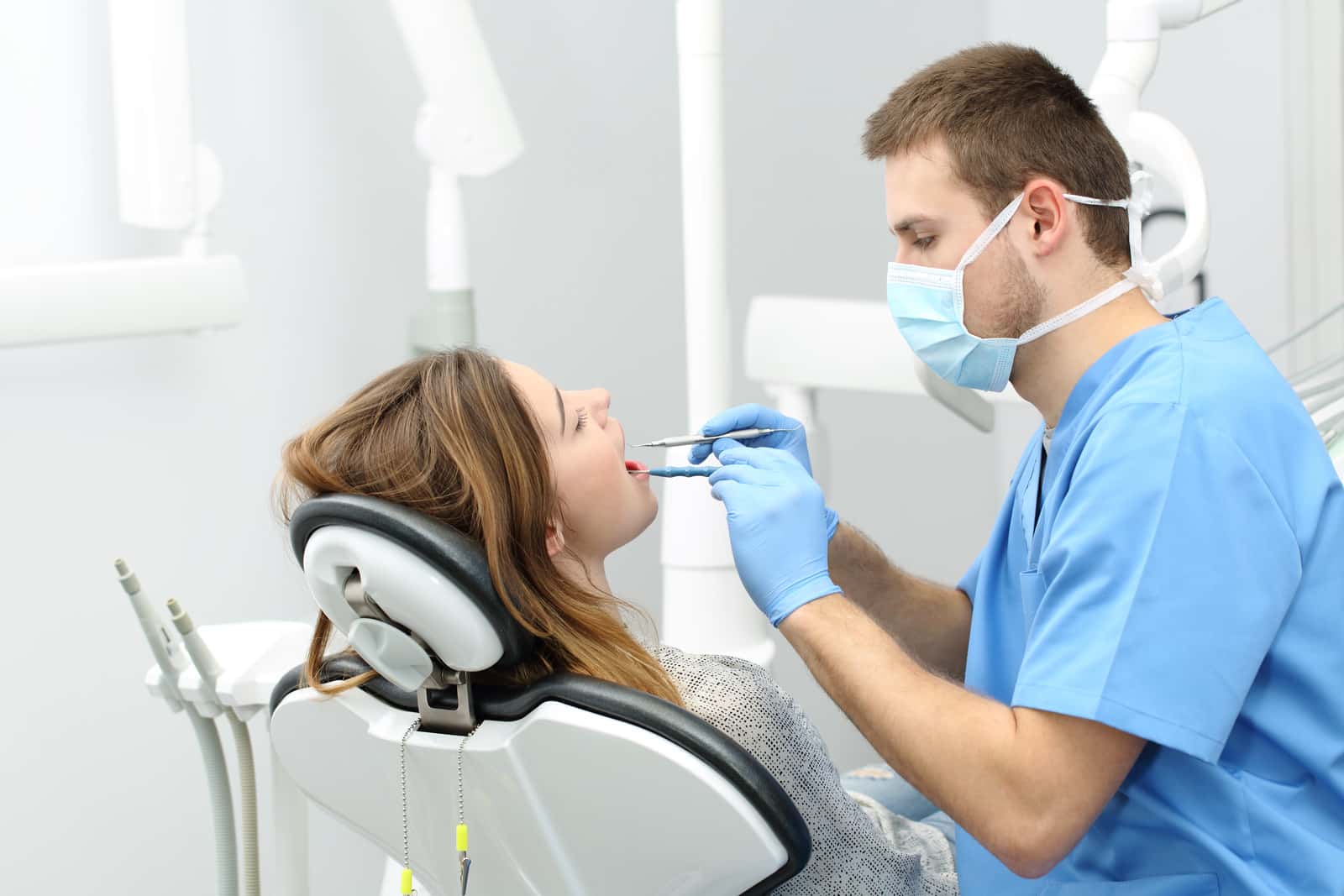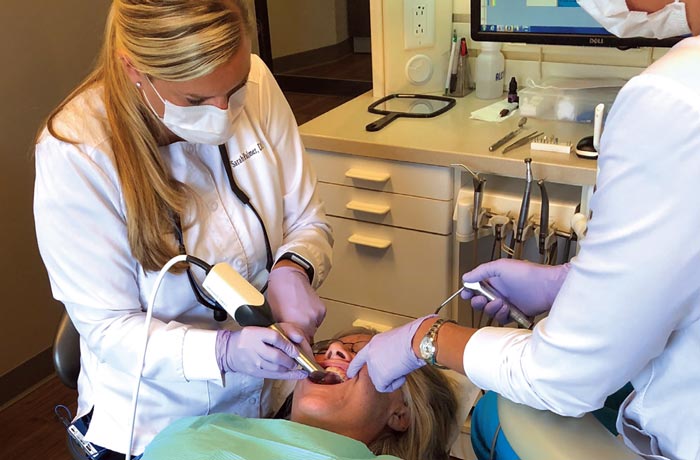A Guide to Typical Oral Conditions That Need a Dental professional's Treatment
Recognizing the variety of dental conditions that require expert care is vital for preserving ideal dental health and wellness. Toothaches, for instance, can be symptomatic of extreme problems such as dental caries, fractured teeth, or abscesses, each calling for certain treatments like dental fillings or root canals. Periodontal illness, from the beginning of gingivitis to more severe periodontitis, underscores the importance of normal oral examinations and cleanings. Furthermore, impacted wisdom teeth and jaw problems can present considerable discomfort and problems. Making sure prompt visits to the dental expert can reduce these issues properly, yet what precisely are the treatments and indicators included?
Toothaches
Toothaches are an usual dental problem that can vary from light discomfort to extreme discomfort, typically indicating a hidden issue that needs specialist interest. This discomfort can stem from a range of resources, including dental cavities, cracked or fractured teeth, and oral abscesses. Each of these conditions presents substantial dangers if left unattended, potentially bring about more serious complications.
Dental tooth cavities, additionally recognized as cavities, are caused by the accumulation of plaque that deteriorates tooth enamel, leading to openings or pits in the influenced teeth. Abscesses are unpleasant infections at the root of a tooth or in between a tooth and the gum, usually resulting from extreme degeneration or unattended cavities.
Effective treatment of toothaches involves dealing with the origin. This may include fillings for cavities, crowns for broken teeth, or root canals and prescription antibiotics for abscesses. Early intervention by an oral specialist can protect against more deterioration and minimize pain, guaranteeing ideal oral health.
Gum Condition
Gum condition, a common yet frequently overlooked oral condition, shows up through swelling and infection of the periodontals and sustaining tissues. If left unattended, gingivitis can advance to periodontitis, a more serious kind defined by the destruction of the sustaining bone and connective tissue, inevitably leading to tooth loss.
The primary root cause of gum condition is bacterial plaque, a sticky, anemic movie that frequently develops on teeth. Poor dental hygiene, cigarette smoking, hereditary tendency, and particular medical conditions, such as diabetic issues, can exacerbate the threat of developing gum tissue illness. Regular oral check-ups are crucial for very early detection and monitoring of this problem.
Therapy for periodontal disease ranges from professional oral cleansing and scaling to advanced treatments like origin planing and gum surgery, depending upon the extent. Maintaining good oral hygiene methods, consisting of cleaning two times daily, flossing, and making use of a disinfectant mouth wash, can considerably minimize the danger of periodontal condition and advertise much healthier gum tissues.
Tooth Cavities
Cavities, additionally referred to as cavities, are a typical dental condition defined by the damage of tooth enamel due to acid-producing bacteria in the mouth. These germs prosper on sugars and starches from food and beverages, producing acids that gradually deteriorate the enamel, bring about dental caries development.
Early-stage tooth cavities may not show signs and symptoms, yet as they advance, they can trigger toothache, level of sensitivity to warm or chilly, visible holes or pits in the teeth, and discoloration. If left unattended, tooth cavities can permeate much deeper layers of the tooth, possibly resulting in extreme discomfort, infection, and even missing teeth.
Avoiding cavities entails a combination of excellent dental hygiene techniques and dietary habits. Normal brushing with fluoride tooth paste, flossing, and routine oral examinations are essential. Dental experts may additionally recommend extra safety nets, such as fluoride treatments and oral sealants, to shield teeth from decay.
Treatment for tooth cavities depends on their intensity. Minor tooth cavities can be resolved with dental fillings, which bring back the tooth's framework. Advanced cases might call for crowns or even root canal treatment if the decay has actually gotten to the tooth's pulp. Prompt treatment by a dental professional is important to avoid difficulties and maintain overall oral health and wellness.

Impacted Knowledge Teeth
Affected knowledge teeth are a prevalent dental issue that occurs when the third molars, generally described as knowledge teeth, stop working to totally emerge or align effectively within the mouth. This condition usually results from inadequate space in the jaw or an unusual development angle of the anonymous teeth. Impacted knowledge teeth can lead to a range of difficulties, including damages, infection, and discomfort to nearby teeth.
When wisdom teeth become impacted, they are frequently partially appeared or continue to be entirely below the gum tissue line. This partial eruption can produce a pathway for bacteria to enter the gums, leading to infections that manifest as swelling, discomfort, and even high temperature. In addition, affected wisdom teeth can apply pressure on surrounding teeth, possibly causing crowding or changing.
A thorough oral examination, usually involving X-rays, is crucial for diagnosing impacted knowledge teeth. Therapy usually involves surgical extraction, carried out by a dental cosmetic surgeon. The treatment aims to alleviate discomfort and protect against further difficulties, such as cysts or damage to bordering bone frameworks. Post-operative care is essential to guarantee that site appropriate healing and reduce the threat of infection. Normal oral exams are advisable to keep an eye on the problem and maintain dental wellness.
Jaw Problems
Jaw disorders, collectively called temporomandibular joint (TMJ) problems, encompass a series of conditions that affect the jaw joint and surrounding muscle mass. These conditions can show up through signs and symptoms such as pain or tenderness in the jaw, trouble chewing, a popping or clicking sound when shutting the mouth or opening, and even persistent frustrations. TMJ problems can occur from various elements, consisting of joint inflammation, jaw injury, or regular actions like teeth grinding or jaw clenching.
Medical diagnosis of TMJ conditions usually involves a comprehensive analysis by a dental practitioner, including a physical examination of the jaw, oral X-rays, and in some cases advanced imaging methods like MRI or CT scans to examine the joint's condition. Non-invasive strategies such as physical therapy, dental splints, and medicines intended at reducing inflammation and discomfort are usually first-line therapies.
Very early intervention by an oral expert is vital to avoid Source the progression of TMJ conditions and to keep general dental health. Individuals experiencing persistent jaw discomfort or disorder ought to look for punctual assessment and therapy.
Verdict
Toothaches commonly suggest underlying problems such as tooth cavities, broken teeth, or abscesses, needing prompt intervention. Influenced knowledge teeth and jaw problems additionally call for specialist interest to ease discomfort and avoid additional problems.
Oral dental caries, additionally understood as cavities, are caused by the build-up of plaque that deteriorates tooth enamel, leading to holes or pits in the affected teeth. Abscesses are painful infections at the origin of a tooth or in between the periodontal and a tooth, generally resulting from extreme degeneration or neglected cavities.

Additionally, influenced wisdom teeth can exert stress on neighboring teeth, possibly causing crowding or changing.